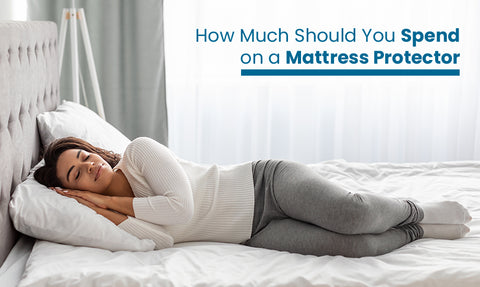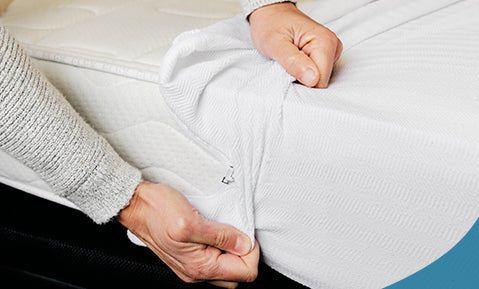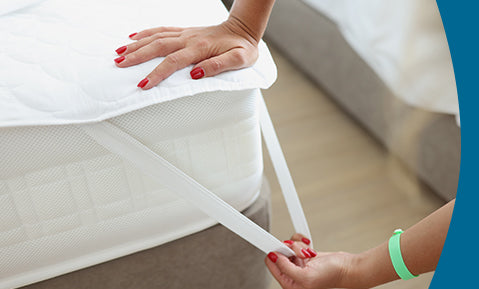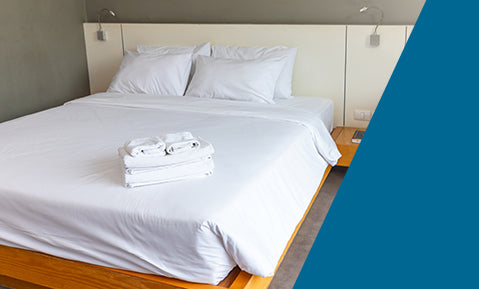
Our body has its own clock, with which it keeps track of the sleep and wake cycle. It is responsible for maintaining your daily schedule. Often influenced by external factors such as light and dark and internal factors such as stress and anxiety, the circadian rhythm maintains body temperature, metabolism, and the sleep-wake cycle.
A disruption to the circadian rhythm can cause sleep disorders such as insomnia.
However, when functioning well, circadian rhythm helps in following a daily sleep schedule and waking up well rested.
How the Human Circadian Rhythm Works?
By keeping track of the 24-hours processes of your internal body, the circadian rhythm optimizes the body's metabolism and maintains a sleep schedule.
According to the circadian rhythm, our endocrine system releases hormones and our digestive system releases proteins. Because of this, experts have hypothesized the existence of a master clock known as a circadian pacemaker, which is located in the hypothalamus in the brain. From here, signals to regulate activities are sent to different parts of the body.
Circadian rhythm may be influenced by internal and external factors such as:
- Light
- Exercise
- Temperature
- Mental health
- Stress and anxiety
Components in our body that are affected by the circadian rhythm include:
- Cells in our body
- Metabolism
- Endocrine system (hormonal balance)
- Sleep-wake cycle
Biological Clock vs Circadian Rhythm
Our body has a biological clock responsible for regulating, among other things, the circadian rhythm. In essence, the circadian rhythm becomes a part of the biological clock. Now, all biological clocks in our body aren’t circadian in nature.
Circadian Rhythm Sleep Disorder
Circadian rhythm sleep disorders can have serious health implications. They can impact not only your physical health but also your mental health.

Here are some symptoms of circadian rhythm sleep disorders:
- Problem with staying asleep
- Not feeling rested after waking up
- Difficulties in falling asleep
Circadian rhythm sleep disorders include:
Advanced Sleep Phase Disorder (ASP)
Too early to bed and too early to rise is the best possible way to describe this sleep phase disorder. Typically, people with this sleep disorder sleep between 6p.m. to 9 p.m. and wake up between 2 a.m. to 5 a.m.
Irregular Sleep Wake Disorder (ISWD)
Because of an inability to sleep for a long time, people with this disorder usually take 3 to 4 naps throughout the day. These sleep episodes may occur at any time of the day.
Delayed Sleep Phase Syndrome (DSPS)
People with this condition often sleep late and wake up late. Some also have trouble waking up on time. Young adults and adolescents are at a higher risk of suffering from this syndrome. Often described as “night owls,” people with this syndrome prefer to work and study late at night.
Non-24-hour Sleep-wake Disorder
Often unable to maintain a proper sleep schedule, people with this circadian rhythm sleep disorder incrementally shift their sleep forward until they’re eventually waking up in the morning.
Circadian Rhythm and Sleep

Sleep is the most important aspect of the circadian rhythm. If you have a regular sleep schedule, then the circadian rhythm will elevate the levels of melatonin in your body at a specific time.
Factors that negatively impact the circadian rhythm:
- Irregular Work shift or night shift
- Exercise before bedtime
- Medications
- Stress and Anxiety
- Mental health conditions such as depression
- Poor sleep habits
- Looking at screen close to bedtime
Resetting the Circadian Rhythm
Although your circadian rhythm may be disrupted, you can reset it by following the methods prescribed below:
- Adhere to the same sleep routine everyday
- Exercise daily but at least 2 hours before bedtime
- Sleep in a sleep inducing environment which has: A comfortable temperature, Proper lightning, Good mattress and pillow
- Avoid caffeine, nicotine, and alcohol close to bedtime
- Use blue light filters on mobile screens
- Don’t take a nap too close to bedtime
Let’s look at some of the most effective tips in more detail.

Exercise
Exercising can not only make you feel happier but also tire out your body. When your body is physically tired, your brain is forced to release melatonin in order to get the muscles repaired as fast as possible.
While at home yoga may be great for relaxation, high intensity or weight training is considered ideal.
Maintain a Good Sleep Routine
If you sleep at the same time everyday, then your brain gets used to the idea and releases melatonin at that very time.
However, not waking up rested may throw you off your routine. In such scenarios, you should focus on sleeping with a good posture.
Depending upon your sleeping position, select an appropriate pillow that provides the ideal balance of firmness and support. When your spine is properly aligned, you’re able to sleep properly.

If you can’t find a good pillow, then go for a shredded memory foam pillow. The pillow case is filled with shredded memory foam, which can be removed to lower the height of the pillow and decrease its firmness. Similarly, memory foam can be inserted to firm up the pillow and increase its height.
You can alter the pillow until you find the perfect level of firmness and loft.
Memory foam conforms according to the shape of your neck, so it fills in the gap between the neck and the pillow. So your neck gets consistent support throughout the night.
While shredded memory foam pillows enable customization, you can go for a normal memory foam pillow too. If you suffer from chronic neck pain, then get an orthopedic cervical pillow.
Use Blue Light Filters on Devices
Blue light emitted from devices such as smartphones and laptops decrease the amount of melatonin in the brain.
Looking at the screen before going to sleep may hamper your ability to fall asleep fast. If you stay awake for a long time despite lying in bed, then stop using such devices at least an hour before going to bed.
In The Final Analysis,
Although you may be experiencing sleep disorders because of an out of sync circadian rhythm, you can reset this rhythm by following good sleep habits, eating a balanced diet, and exercising regularly.
NEWS:
Circadian Rhythm Sleep Treatment Market to Experience Huge Growth in Near Future (May 17, 2021)
As per a recent report by Decisive Markets Insights, the Circadian Rhythm Sleep Treatment Market is expected to experience huge growth in near future. At present, it is growing at a CAGR of 9.2%.












